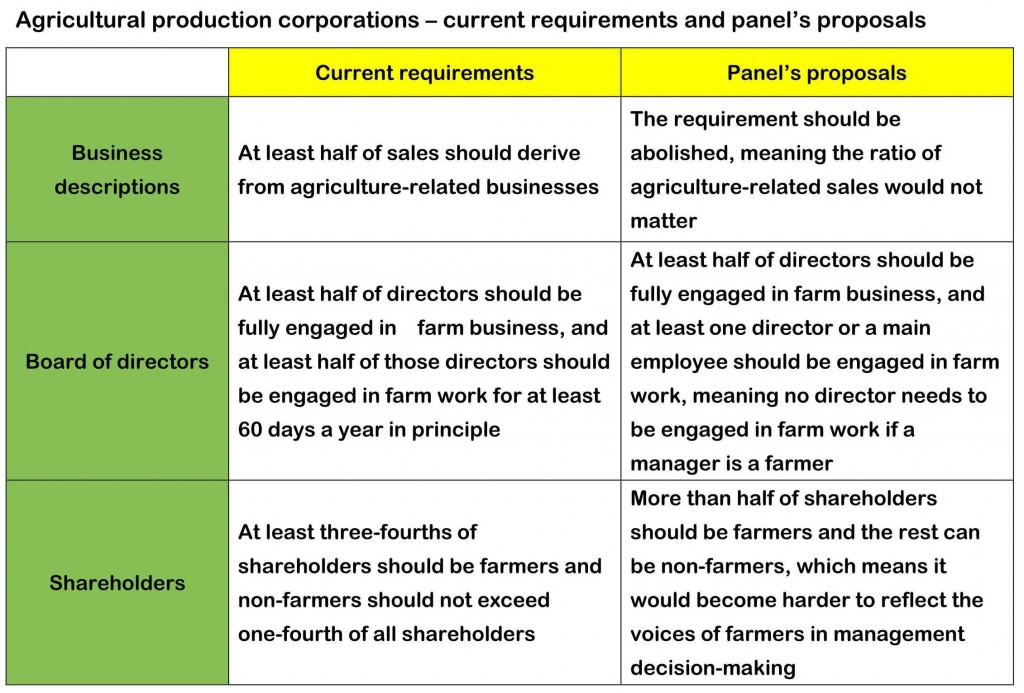The government’s Council for Regulatory Reform has called for drastic deregulation in establishing agricultural production corporations which can own farmlands. The proposal goes against the recent trend where farmland transactions are largely shifting from selling to lending under the revised Agricultural Land Law and the farmland consolidation banks established this fiscal year. The idea apparently reflects strong request from the business community to allow farmland acquisition by private companies.
The Agricultural Land Law was revised in 2009 to allow companies other than agricultural production corporations to rent farmlands. After the revision of the law, more companies began to engage in agribusiness, with the number amounting to 1,261 cases as of June 2013, according to the Ministry of Agriculture, Forestry and Fisheries. The number increased more than sevenfold compared with June 2010, six months after the revision.
Despite the fact that companies’ entries into farm business are already rising even under the current framework, the council held on to the idea of letting companies own farmlands and called for relaxation of requirements to set up agricultural production corporations.
Specifically, the council proposed deregulation in three factors – requirements concerning such corporations’ business, directors and shareholders. If the deregulation is implemented, it will reduce the degree of participation by those in the agricultural sector and lower hurdles for companies’ farmland purchases.
Currently, agricultural production corporations are required to have at least three-fourths of their shareholders with voting rights engage in agriculture, and the number of non-farmer shareholders should be one-fourth or less. The council demanded that the minimum required number of farmer investors be reduced to more than half, and that no restriction should be set for the rest of shareholders.
This means the number of farmer investors will decline and the maximum of 49 percent of investors can be people unrelated to agriculture or related industries.
A corporation’s business plan is usually approved at its general meeting of shareholders. A general meeting is valid if shareholders representing at least half of the share capital are present, and the resolutions are passed by a majority.
If the maximum of 49 percent of shareholders are to be composed of non-farmers, there is a possibility that more of those who attend general meetings and approve business plans will be people unrelated to agriculture. It may become more difficult to reflect farmers’ will in corporate management including farmland management policies.
The council also asked for the abolishment of a regulation which requires at least half of an agricultural production corporation’s sales to come from agriculture-related businesses, including processing and sales of farm products. This means the ratio of agriculture-related sales would not matter.
As for the board of directors, the council proposed that the current rule requiring at least half of directors to be “fully engaged” – at least 150 days a year in principle – in farm business should be maintained. However, it said that the rule requiring at least half of those directors to be “engaged” – at least 60 days a year – in farm work should be changed to require at least one director or a main employee to be engaged in farm work. This means a corporation would not be required to have any director engaging in farm work if a manager-level employee is engaged in farm work.
(May 20, 2014)


